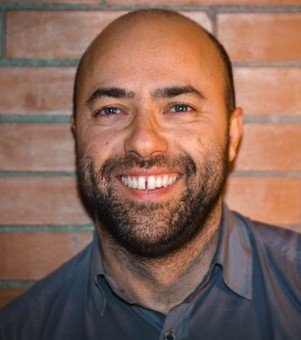Abstract: Digital Twins (DTs) are software replicas that not only mirrors physical entities but can also proactively predict, control, optimize and simulate their behavior. Born in the manufacturing sector, this concept after an initial hype stayed untouched for decades. The rise of Internet of Things (IoT) and Artificial Intelligence (AI) enabled DT, respectively, to exchange real-world data and to fully exploit it for fulfilling its own goals. Very recently, Gener-ative AI (Gen-AI) methods started being sporadically applied to DT in different contexts and with different targets. In this talk, starting from our experiences on design, implementation and evaluation of DTs and, more recently, of Opportunistic DTs, we first provide a definition for the Generative DT (GDT) which embraces main distinctive aspects and potential of current and future Gen-Al-aided DTs.
In particular, we disclose the role of Gen-AI in conciliating the model- and the data-driven approach for the development of DTs. Then, we analyze the added value of main Gen-AI architectures for maximizing the performance of DTs operating in the IoT domain and deployed in the edge-cloud continuum.
Finally, we illustrate the potential of a GDT in emblematic Smart City scenarios through a use case involving the prediction of vehicles' trajectories when, due to uncontrolled events, only partial information is accessible. The outlined solution conciliates accuracy and explainability in the trajectory prediction with overall system robustness and effectiveness.

Giancarlo Fortino (IEEE Fellow 2022) is Full Professor of Computer Engineering at the Dept of Informatics, Modeling, Electronics, and Systems of the University of Calabria (Unical), Italy. He received a PhD in Computer Engineering from Unical in 2000. Since 2016, he is senior research fellow at the Italian ICAR-CNR Institute. Fortino is also distinguished professor and scientist of several chinese universities and research centers: Wuhan University of Technology (WUT), Huazhong Agricultural University (HZAU), Huazhong University of Science and Technology (HUST), Nanyang Institute of Technology (NYIST), East China Jiaotong University (ECJTU), Chengdu University of Information Technology (CUIT), and Shenzhen Institute of Advanced Technology (SIAT). He was also visiting researcher at ICSI, Berkeley (USA), in 1997 and 1999 and visiting professor at Queensland University of technology in 2009. He is currently Distinguished Lecturer of the IEEE SMC society. At Unical, he is the Rector’s delegate to Int’l relations, the chair of the PhD School in ICT, the former director of the Postgraduate Master course in INTER-IoT, and the director of the SPEME lab as well as co-chair of Joint labs on IoT established between Unical and WUT, SMU and HZAU Chinese universities, respectively. Fortino is currently the scientific responsible of the UNICAL Digital Health group of the Italian CINI National Laboratory and of IEEE@Unical initiative. He is Highly Cited Researcher 2020-2024 in Computer Science by Clarivate. He had 25+ highly cited papers in WoS, and h-index=85 with about 30000 citations in Google Scholar. His research interests include wearable computing systems, e-Health, Internet of Things, agent-based computing, and, more recently, generative AI in Education. He is author of 750+ papers in int’l journals, conferences and books. He is (founding) series editor of IEEE Press Book Series on Human-Machine Systems and EiC of Springer Internet of Things series and AE of premier int'l journals such as IEEE TASE (senior editor), IEEE TAFFC-CS, IEEE THMS, IEEE T-AI, IEEE SJ, IEEE JBHI, Information Fusion, EAAI, etc. He chaired many int’l workshops and conferences (about 150), was involved in a huge number of int’l conferences/workshops (about 1000) as IPC member, is/was guest-editor of many special issues (about 100). He is cofounder and CEO of SenSysCal S.r.l., a Unical spinoff focused on innovative IoT systems, and recently cofounder and vice-CEO of the spin-off Bigtech S.r.l, focused on big data, AI and IoT technologies. Fortino is currently Associate VP of the Cybernetics area of the IEEE SMCS and former member of the IEEE SMCS BoG and former chair anc current treasurer of the IEEE SMCS Italian Chapter.

